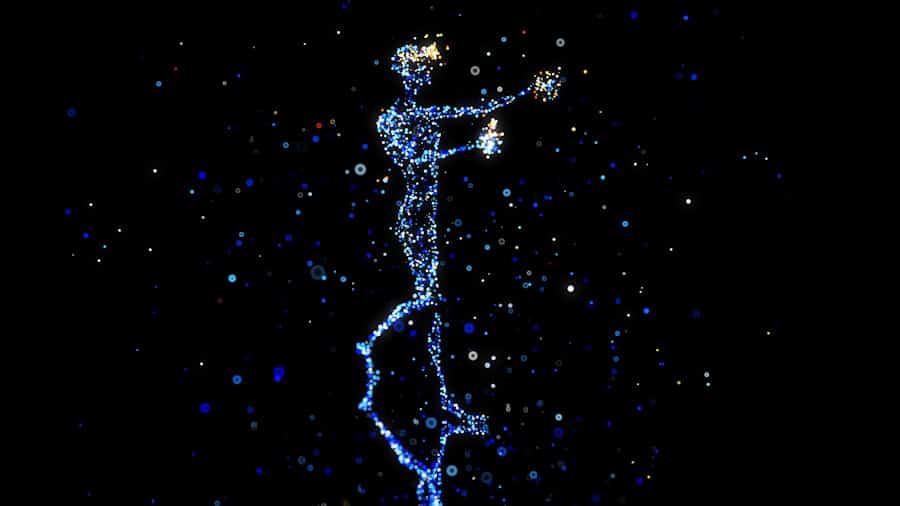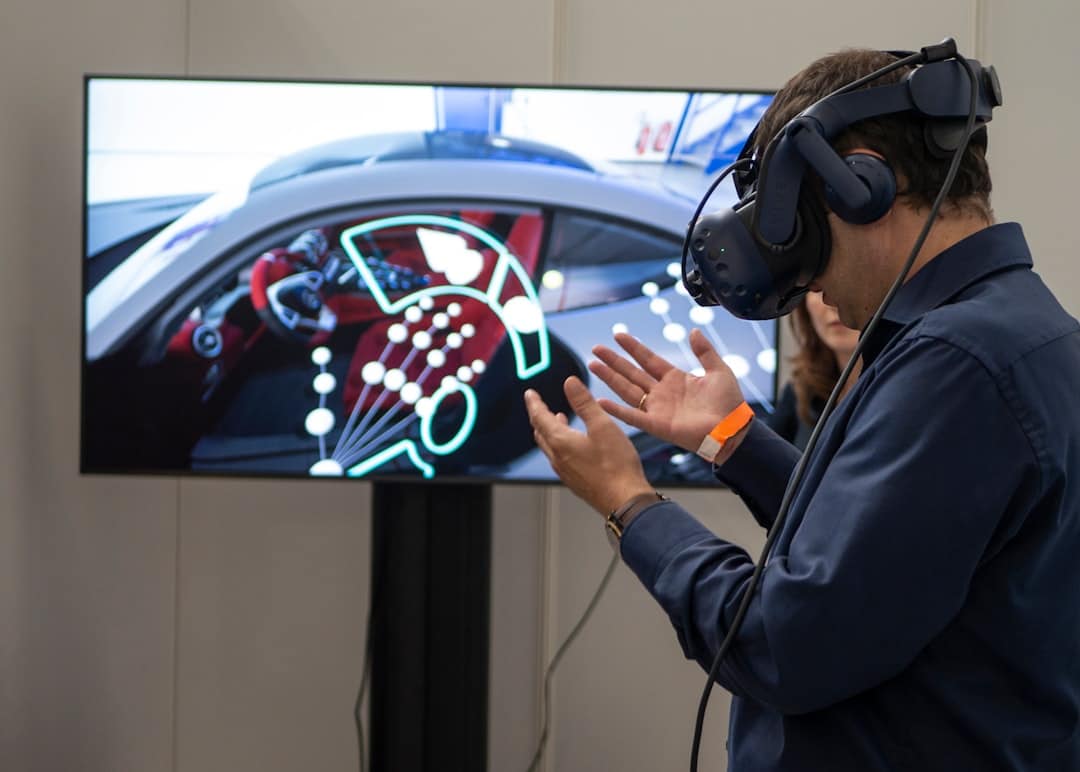In recent years, the landscape of career guidance has undergone a significant transformation, largely due to the advent of artificial intelligence (AI). Traditional methods of career counseling, which often relied on standardized tests and subjective assessments, are being supplemented or even replaced by AI-driven solutions that offer personalized insights and recommendations. This shift is particularly relevant in high school settings, where students are at a critical juncture in their lives, making decisions that will shape their educational and professional trajectories.
AI-driven career guidance leverages vast amounts of data, machine learning algorithms, and predictive analytics to provide tailored advice that aligns with individual student interests, skills, and market demands. The integration of AI into career guidance systems is not merely a technological advancement; it represents a paradigm shift in how students perceive their future options. By utilizing AI tools, students can access real-time information about various career paths, including job availability, salary expectations, and required qualifications.
This data-driven approach empowers students to make informed decisions based on their unique profiles rather than relying solely on generalized advice from counselors.
Key Takeaways
- AI-driven career guidance uses artificial intelligence to provide personalized career advice and recommendations to individuals.
- The benefits of AI-driven career guidance include increased accessibility, efficiency, and accuracy in matching individuals with suitable career paths.
- Challenges and limitations of AI-driven career guidance include the potential for bias in algorithms, lack of human touch, and the need for continuous updates and improvements.
- Ethical considerations in AI-driven career guidance revolve around privacy, data security, and the responsible use of personal information.
- Integrating AI-driven career guidance into high school curriculum can help students make informed decisions about their future careers and educational paths.
Benefits of AI-Driven Career Guidance
One of the most significant advantages of AI-driven career guidance is its ability to provide personalized recommendations based on a comprehensive analysis of individual student data. By assessing factors such as academic performance, extracurricular activities, personality traits, and even social media presence, AI systems can generate insights that are uniquely tailored to each student. For instance, a student who excels in mathematics and shows an interest in technology might receive suggestions for careers in data science or software engineering.
This level of personalization is often unattainable through traditional counseling methods, where advice may be more generalized and less reflective of individual capabilities. Moreover, AI-driven platforms can continuously update their recommendations based on evolving job market trends. As industries change and new roles emerge, these systems can analyze labor market data to inform students about the most promising career paths.
For example, with the rise of renewable energy technologies, an AI system might highlight careers in solar energy engineering or environmental science as viable options for students interested in sustainability. This dynamic approach not only helps students align their aspirations with market realities but also encourages them to consider fields that they may not have previously explored.
Challenges and Limitations of AI-Driven Career Guidance

Despite the numerous benefits associated with AI-driven career guidance, several challenges and limitations must be acknowledged. One primary concern is the reliance on data quality and availability. AI systems are only as effective as the data they are trained on; if the underlying data is biased or incomplete, the recommendations generated may also reflect those shortcomings.
For instance, if an AI system predominantly draws from data that emphasizes certain professions over others due to historical trends, it may inadvertently discourage students from pursuing careers in less represented fields. This could perpetuate existing inequalities in career choices and limit diversity in various industries. Another challenge lies in the potential for over-reliance on technology at the expense of human interaction.
While AI can provide valuable insights, it cannot fully replicate the nuanced understanding that human counselors bring to the table. Students often benefit from personal connections and empathetic guidance that address their emotional and psychological needs during the decision-making process. The risk is that students may become overly dependent on AI tools, leading to a diminished role for human counselors who can offer support beyond mere data analysis.
Striking a balance between leveraging AI capabilities and maintaining essential human elements in career guidance is crucial for ensuring that students receive holistic support.
Ethical Considerations in AI-Driven Career Guidance
The implementation of AI-driven career guidance raises several ethical considerations that warrant careful examination. One significant concern is privacy and data security. As these systems collect vast amounts of personal information from students, including academic records and behavioral data, there is a heightened risk of data breaches or misuse.
Educational institutions must prioritize robust security measures to protect sensitive information and ensure compliance with regulations such as the Family Educational Rights and Privacy Act (FERPA) in the United States. Transparency regarding how data is collected, stored, and utilized is essential to build trust among students and parents. Additionally, there is the ethical dilemma of algorithmic bias.
If AI systems are trained on historical data that reflects societal biases—such as gender or racial disparities—there is a risk that these biases will be perpetuated in the recommendations provided to students. For example, if an AI system has been trained on data showing that certain demographics are less likely to pursue STEM careers, it may inadvertently discourage students from those demographics from considering such paths. To mitigate this risk, developers must ensure that diverse datasets are used in training algorithms and continuously monitor outcomes for fairness and equity.
Integrating AI-Driven Career Guidance into High School Curriculum
To maximize the benefits of AI-driven career guidance, it is essential to integrate these tools into the high school curriculum effectively. This integration should begin with training educators and counselors on how to utilize AI tools effectively while maintaining their roles as mentors and guides. Professional development programs can equip teachers with the skills needed to interpret AI-generated insights and incorporate them into classroom discussions about career exploration.
By fostering an environment where technology complements traditional teaching methods, schools can create a more comprehensive approach to career readiness. Furthermore, incorporating AI-driven career guidance into existing curricula can enhance student engagement and motivation. For instance, schools can organize workshops where students interact with AI platforms to explore various career options based on their interests and skills.
These workshops can include hands-on activities where students analyze labor market trends or participate in simulations that mimic real-world job scenarios. By making career exploration an interactive experience, schools can encourage students to take ownership of their future paths while leveraging the power of AI technology.
The Role of Human Counselors in AI-Driven Career Guidance

While AI-driven tools offer valuable insights into career options, the role of human counselors remains indispensable in the guidance process. Human counselors bring emotional intelligence, empathy, and contextual understanding that technology cannot replicate. They can help students navigate complex feelings about their future choices, address concerns about family expectations or societal pressures, and provide encouragement during moments of uncertainty.
The human touch is particularly important for students who may be facing unique challenges or barriers that require personalized support. Moreover, human counselors can serve as interpreters of AI-generated data, helping students understand how to apply insights to their individual circumstances. For example, if an AI system suggests a particular career path based on a student’s strengths but the student feels uncertain about pursuing it due to external factors, a counselor can facilitate discussions that explore those concerns more deeply.
By combining the analytical capabilities of AI with the relational skills of human counselors, schools can create a more balanced approach to career guidance that addresses both cognitive and emotional dimensions.
Future Trends and Innovations in AI-Driven Career Guidance
As technology continues to evolve, so too will the landscape of AI-driven career guidance.
These immersive technologies can allow students to virtually step into different work environments or engage in simulations that mimic real job tasks.
For instance, a student interested in healthcare could participate in a VR simulation of a hospital setting, gaining firsthand experience of what it’s like to work as a nurse or doctor. Such innovations can provide deeper insights into various careers while making exploration more engaging. Another promising development is the integration of AI with social-emotional learning (SEL) frameworks within schools.
By combining career guidance with SEL principles, educators can help students develop not only their professional aspirations but also essential life skills such as resilience, adaptability, and interpersonal communication. For example, an AI system could assess a student’s emotional readiness for certain careers while providing resources for developing necessary soft skills. This holistic approach could better prepare students for the complexities of modern workplaces while fostering personal growth alongside professional development.
The Impact of AI-Driven Career Guidance on High School Students
The impact of AI-driven career guidance on high school students is profound and multifaceted. By providing personalized insights based on individual strengths and market trends, these systems empower students to make informed decisions about their futures. However, it is crucial to navigate the challenges associated with data quality, ethical considerations, and the role of human counselors carefully.
As educational institutions embrace this technology, they must prioritize a balanced approach that combines the analytical power of AI with the empathetic support of human guidance. As we look ahead to future innovations in this field, it becomes clear that AI-driven career guidance has the potential not only to enhance individual decision-making but also to contribute to broader societal goals such as workforce diversity and economic resilience. By equipping high school students with the tools they need to explore their options confidently and thoughtfully, we can foster a generation of informed individuals ready to navigate an ever-changing job landscape.
In a recent article on Enicomp, the future of AI-driven career guidance for high school students was explored in depth. The article discussed how advancements in artificial intelligence are revolutionizing the way students receive career advice and make decisions about their future. It also highlighted the importance of incorporating technology into the career counseling process to ensure that students are well-equipped to navigate the ever-changing job market. This article provides valuable insights into how AI can be leveraged to provide personalized and effective career guidance to high school students.
FAQs
What is AI-driven career guidance for high school students?
AI-driven career guidance for high school students refers to the use of artificial intelligence technology to provide personalized career advice and recommendations to students. This technology uses algorithms and data analysis to match students with potential career paths based on their skills, interests, and aptitudes.
How does AI-driven career guidance work?
AI-driven career guidance works by collecting and analyzing data from various sources, such as student assessments, academic records, and career information databases. The AI system then uses this data to generate personalized career recommendations and guidance for each student, taking into account their individual strengths and preferences.
What are the benefits of AI-driven career guidance for high school students?
Some of the benefits of AI-driven career guidance for high school students include:
– Personalized recommendations based on individual strengths and interests
– Access to a wide range of career information and resources
– Guidance that is available 24/7 and can be accessed remotely
– The ability to explore and consider a variety of career options before making decisions
Are there any potential drawbacks or limitations to AI-driven career guidance?
While AI-driven career guidance offers many benefits, there are also potential drawbacks and limitations to consider. These may include:
– The reliance on data and algorithms, which may not capture the full range of a student’s abilities and potential
– The need for ongoing updates and maintenance to ensure the accuracy and relevance of the guidance provided
– The potential for bias in the algorithms and data used, which could impact the recommendations given to students
How is AI-driven career guidance being implemented in high schools?
AI-driven career guidance is being implemented in high schools through the use of specialized software and platforms that are designed to collect and analyze student data, generate personalized recommendations, and provide access to career resources. These tools may be integrated into existing school counseling programs or offered as standalone resources for students to use independently.

